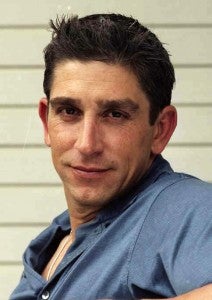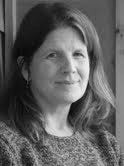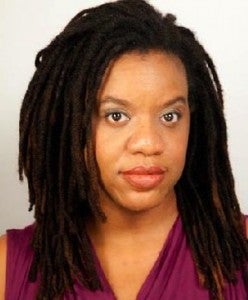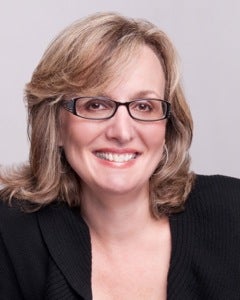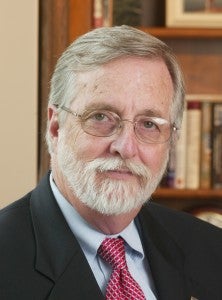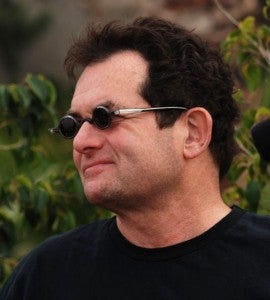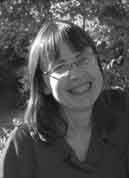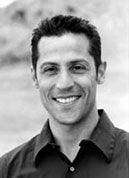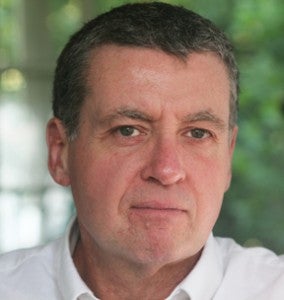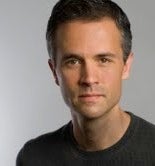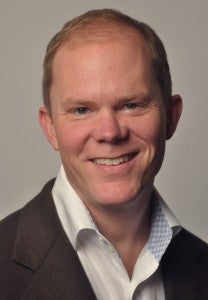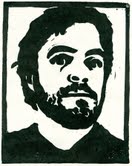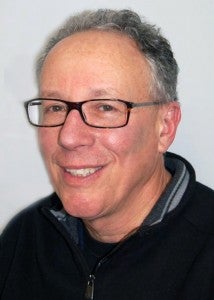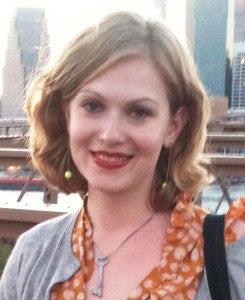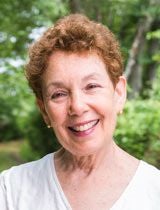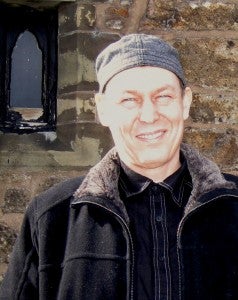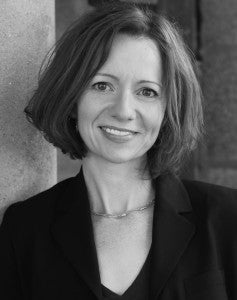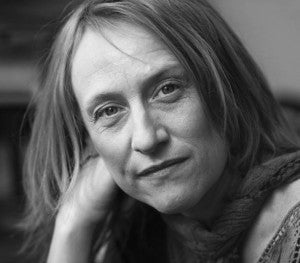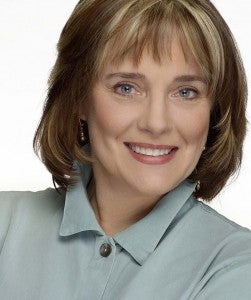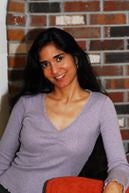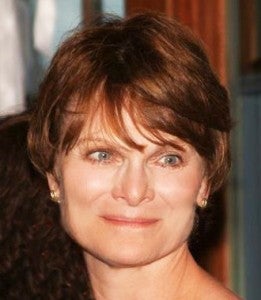Please click one of the collapsible tabs to read more about the 2013 Ocean State Summer Writing Conference.
These tabs may take a while to load!
To return to the current conference, click on “Ocean State Summer Writing Conference” above.
CLICK HERE TO VIEW THE 2013 OSSWC PHOTO ALBUM
-
CLICK HERE TO VIEW THE 2013 OSSWC PHOTO ALBUM
2013 KEYNOTE SPEAKERS



Ayad Akhtar
2013 Pulitzer Prize Winning PlaywrightAmity Gaige
Prizewinning NovelistRichard Blanco
2013 Presidential
Inaugural PoetURI IS PROUD TO ANNOUNCE ITS SEVENTH ANNUAL OCEAN STATE SUMMER WRITING CONFERENCE
New this year! Don’t miss new features, intensives, and master classes at this year’s conference on the dramatic arts; fantasy and science fiction; and biography writing.
Located within surfing distance of the Atlantic Ocean,
in South County, Rhode Island.Close to charming historic Newport.
By day, absorb the wisdom and insights of some of today’s finest writers.
By night, explore the area’s colonial history, natural landscapes and seascapes, or the art galleries, museums and world-class dining in South County, Newport, and nearby Providence.

DISCOVER THE OCEAN STATE REVIEW
VOLUME 3 (COMING JUNE 2013) -
Keynote Speakers
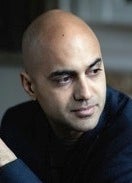
Ayad Akhtar is a novelist, playwright, screenwriter, and actor. His play Disgraced, has recently received the 2013 Pulitzer Prize for Drama, along with the 2012 Jeff Equity Award for Best New Play. Disgraced, which examines identity and religion in the contemporary world, premiered at the American Theatre Company in Chicago, opened the 2012-2013 Lincoln Center’s LCT2 Theater season this past fall, and is scheduled to premier at the Bush Theater in London in May. His novel American Dervish (2012), named a Best Book of the Year by Kirkus Reviews and Toronto’s The Globe and Mail, depicts a Pakistani-American boy’s coming of age in Milwaukee, Wisconsin, the town where Akhtar grew up. Akhtar starred in and co-wrote the screenplay for The War Within, nominated for an Independent Spirit Award for Best Screenplay and an International Press Academy Satellite Award. He has been heralded as a “significant and formidable dramatic writer” (Chris Jones, Chicago Tribune).
Richard Blanco was selected by President Obama to be the 2013 inaugural poet, joining the ranks of Robert Frost and Maya Angelou. His acclaimed first book of poetry, City of a Hundred Fires (1998), explores the yearnings and negotiation of cultural identity as a Cuban-American, and received the Agnes Starrett Poetry Prize from the University of Pittsburgh Press. His second book, Directions to The Beach of the Dead (2005), won the Beyond Margins Award from the PEN American Center for its continued exploration of the universal themes of cultural identity and homecoming. Looking for The Gulf Motel, (University of Pittsburgh Press (2012), examines the blurred lines of gender, the frailty of his father-son relationship, and the intersection of his cultural and sexual identities as a Cuban-American gay man living in rural Maine. Jim Elledge writes, “Every poem in Looking for The Gulf Motel packs an emotional wallop and an intellectual caress. A virtuoso of art and craft who juggles the subjective and the objective beautifully, Blanco is at the height of his creative prowess and one of the best of the best poets writing today.”
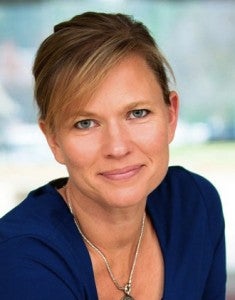
Amity Gaige is the author of the novels O My Darling (2005),The Folded World (2007) named ForeWord Book of the Year and one of the best books of 2007 by the Chicago Tribune, and Schroder (2013). Schroder, “ a radiant meditation on identity, memory and familial love” (Publisher’s Weekly) and an “offbeat, exquisitely written novel” (Jennifer Egan), has been translated into 14 languages. Gaige’s honors include a Fulbright Fellowship, a Baltic Writers Residency, and fellowships at The MacDowell Colony and Yaddo. In 2006 she was named one of the “5 under 35” outstanding emerging writers by the National Book Foundation. Gaige’s short stories, reviews and essays have appeared in The New York Times, O Magazine, One Story, The Yale Review and other venues. She is a founding Ocean State Summer Writing Conference workshop leader and is Visiting Writer at Amherst College in Amherst, Massachusetts.
Seminars, Workshops and Craft Sessions
Talvikki Ansel has published two books of poems: My Shining Archipelago (Yale Series of Younger Poets Award) and Jetty & other poems. Her poems are currently or forthcoming in The Cincinnati Review, The Kenyon Review,and in the anthology The Hide-and-Seek Muse: Annotations of Contemporary Poetry (Drunken Boat, 2013). She has received a Stegner Fellowship, Pushcart Prize, a Lannan Residency Fellowship, and a grant from the Money for Women / Barbara Deming Memorial Fund. She is an adjunct instructor at The University of Rhode Island.
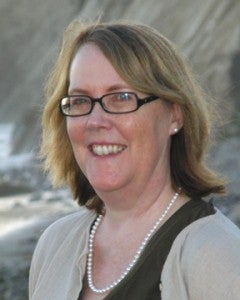
Jeannine Atkins writes books about history for children and teens, including Aani and the Tree Huggers (Lee and Low) andBorrowed Names: Poems about Laura Ingalls Wilder, Madam C. J. Walker, Marie Curie and Their Daughters (Holt). She teaches Children’s Literature at the University of Massachusetts-Amherst and a graduate course in writing for children at Simmons College. You can learn more on her website at http://www.Jeannineatkins.com.
This spring and summer, LaShonda Katrice Barnett’s short stories appear in, or are forthcoming in C4: The Chamber Quarterly Literary Review (“Ezekiel Saw the Wheel”), The New Orleans Review (“Hen’s Teeth”) and Gemini Magazine(“533”). Barnett is the author of one story collection, editor of I Got Thunder: Black Women Songwriters On Their Craft (2007) and Off the Record: Conversations with African American and Brazilian Women Musicians (Rowman & Littlefield, Fall 2013), and recently completed her debut novel. A graduate of Sarah Lawrence College and the College of William and Mary, where she received an M.A. in Women’s History and the PhD in American Studies respectively, she divides her time between Manhattan and Providence, where she is Visiting Assistant Professor in Ethnic Studies at Brown University, writing an historical novel about 18th century African American seafaring men. You can find LaShonda on the web at LaShondaBarnett.com.
Photo Credit: Rachel Eliza Griffiths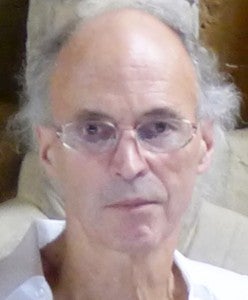
Britt Bell has been in publishing in one form or another for over fifty years. Early on he was a book buyer for the largest book distributor in Ontario, Canada. He went on to become a publisher’s rep based in Southern California. In time he moved to New York City working for Delacorte Press and Dial Press. He would become the managing editor at Dial working with the wonderful author, James Baldwin on his novel, Just Above My Head. In 1984, along with his late wife Jennifer Moyer, he started Moyer Bell publishing. With a staff of five, Jennifer and Britt published ten to fifteen books a year for most of the past twenty-nine years. Some of their author’s are Vanessa Bell, Basil Bunting, E.F. Benson, Pearl S. Buck, Jennifer Bartlett, Noam Chomsky, Alice Thomas Ellis, Barbara Gordon, Robert Graves, Sir Fred Hoyle, Helene Hanff, August Kleinzahler, James Laughlin, Robert Leuci, Berthe Morisot, Shena McKay, Ralph Nader, Nostradamus, Gerard de Nerval, Jacques Prevert, Barbara Pym, Madame Roland, Vita Sackville-West, Angela Thirkell, and Edmund Wilson.
Nancy Berk, Ph.D. is a clinical psychologist, comic and award-winning humor writer. A frequent contributor to Chicken Soup for the Soul, she is also a Huffington Post and USA Today College blogger, and social media analyst. Her latest book College Bound and Gagged: How to Help Your Kid Get into a Great College Without Losing Your Savings, Your Relationship, or Your Mind appears in the film Admission, starring Tina Fey and Paul Rudd. Nancy has consulted with Fortune 500 companies, major media outlets (WSJ, NYT, Parade Magazine, Huffington Post Live) and celebrities on psychology/lifestyle issues and social media strategy. She hosts three iTunes’ podcasts including the popular celebrity podcast “Whine At 9”. She was a 2011 keynote speaker for the American Marketing Association’s Symposium and has spoken at numerous national meetings including the 2012 Women’s Summit and The Erma Bombeck Writers’ Workshop.
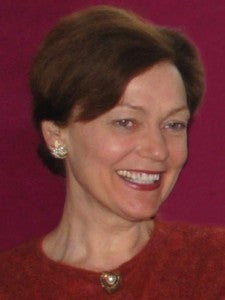
Mairéad Byrne is the author of five poetry collections You Have to Laugh: New + Selected Poems (Barrow Street, 2013), The Best of (What’s Left of) Heaven (Publishing Genius, 2010), Talk Poetry (Miami University Press, 2007),SOS Poetry (/ubu Editions, 2007), and Nelson & The Huruburu Bird (Wild Honey Press, 2003); also five poetry chapbooks. Collaborations with visual artists includeJennifer’s Family, photographs by Louisa Marie Summer (Schilt, 2012), Lucky, with illustrations by Abigail Lingford (Little Red Leaves, 2012), and three books with Irish painters. An Irish emigrant, Mairéad Byrne practices the poetics of diversity. She is the cofounder, curator and emcee forcouscous, a poetry/music/performance series which has been running monthly for five years in Providence, where she is employed as Professor of Poetry + Poetics at Rhode Island School of Design.
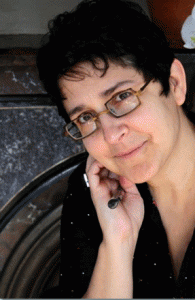
A 2011 Guggenheim Fellow in Nonfiction, Mary Cappello is the author of four books of literary nonfiction, including Called Back: My Reply to Cancer, My Return to Life (which won a Foreword Book of the Year Award, and Independent Publishers Prize), and Awkward: A Detour (a Los Angeles Times Bestseller). Her numerous essays and experimental prose appear in such venues as The Georgia Review,Salmagundi, and Cabinet Magazine. Her work has been featured in The New York Times, Salon.com, The Huffington Post, NPR, MSNBC, in guest author blogs for Powells Books, and on five separate occasions as Notable Essay of the Year in Best American Essays. A recipient of The Bechtel Prize for Educating the Imagination from Teachers and Writers Collaborative, and the Dorothea Lange-Paul Taylor Prize from Duke University’s Center for Documentary Studies, Cappello is a former Fulbright Lecturer at the Gorky Literary Institute (Moscow), and currently Professor of English and creative writing at URI. Based on her most recent book,Swallow, she has served as Distinguished Visiting Professor at U/Penn’s Grand Rounds in Otolaryngology, as Presidential Lecturer for the ABEA, and as co-curator of the newly refurbished Chevalier Jackson Foreign Body Collection in Philadelphia’s Mutter Museum.
Dr. Robert Carothers served for eighteen years as the President of the University of Rhode Island. Prior to coming to Rhode Island, Dr. Carothers served as the President of Southwest Minnesota State University and as Chancellor of the Minnesota State University System. He has worked extensively in the areas of alcohol and drug abuse, civil rights, and non-violence. He received lifetime achievement awards from the American Council on Education, the New England Board of Higher Education, The Urban League, and many more. He is the recipient of the Robert F. Goodrich Distinguished Public Service Award, The President’s Leadership Award from the National Institute for Alcohol Abuse and Alcoholism, the Jeanne Clery Campus Security Award and the Rhode Island Historical Society’s History Maker Award. Since 2010, Dr. Carothers has been a member of the Rhode Island Board of Regents for Elementary and Secondary Education. Carothers holds a B.A. in English from Edinboro University, a Ph.D. from Kent State University and a J.D. from the University of Akron. He is currently President Emeritus and Distinguished University Professor at the University of Rhode Island, where he teaches courses in leadership. A poet, Carothers has published two books of poetry: Freedom and Other Times (1972) and John Calvin’s Favorite Son (1979).
Rob Cohen is a writer and director who has worked across the expanse of the movie and television business, and directed films around the world. He was the Executive Producer/Creative Director of the series NextWorld andFutureCar, produced by CBS and aired on the Discovery Channel. He has also created programming for the History Channel, NBC and USA Networks. For 3 consecutive years, he wrote and directed the John McEnroe US Open tv special. Prior to his work at CBS, Rob Cohen directed and produced the film The Longest River, which was part of the PBS series,Quest. He also directed the opening film for the Super Bowl. He has just finished directing/writing the documentary featureKinderblock 66: Return to Buchenwald. As a writer and director in advertising and corporate media, he has created films and television spots for the leading global brands including General Motors, Cisco, GAP, Sony, McDonalds, GE, and many others. Rob Cohen runs the production company Internal Combustion. He is currently under contract to write the new sitcom Wheels.
Betty J. Cotter of Wakefield, RI, is the author of the novelRoberta’s Woods, which was published in 2008 by Five Star, and The Winters, which she self-published in 2012. She recieved the 2006 fiction fellowship from the RI State Council on the Arts and holds an MFA in writing from the Vermont College of Fine Arts. She teaches English composition at Three Rivers Community College in CT and writing and journalism at the University of Rhode Island. In addition, she offeres writing workshops for adult writers and coordinates an authors lecture series at Contemporary Theater in Wakefield. She blogs at swampyankeewoman.wordpress.com
Peter Covino is a poet, translator, editor, and Associate Professor of English and Creative Writing at the University of Rhode Island. He is the author the poetry collections The Right Place to Jump (2012), recently featured on NPR, and on the Huffington Post, and Cut Off the Ears of Winter (2005) both from W. Michigan University Press, New Issues. His prizes include the 2007 PEN American/ Osterweil Award for emerging poets and the Frank O’Hara Poetry Prize for his chapbook Straight Boyfriend (2001). Recent poems appeared in such places as the American Poetry Review, Colorado Review, Gulf Coast, The Journal, LIT, The Paris Review, The Yale Review, and The Penguin Anthology of Italian-American Writing, among others. He is also one of the founding editors of Barrow Street Press; since 2009 he’s been the poetry editor of VIA: Voices in Italian Americana.
Edward J. Delaney is an award-winning author, journalist and filmmaker. His books include the novels Broken Irish andWarp & Weft and the short-story collection The Drowning and Other Stories. He was a 2008 National Endowment for the Arts Literary Fellow, a winner of the 2005 PEN/Winship Award for Fiction, and a past winner of an O. Henry Prize for short story writing. His work has appeared regularly in The Atlantic Monthly and other magazines, and has appeared inBest American Short Stories. He is also the co-author of Born to Play, My Life in the Game, by Boston Red Sox second baseman Dustin Pedroia. As a journalist, Delaney wrote forThe Chicago Tribune Magazine, The Denver Post and other publications before beginning to write fiction.
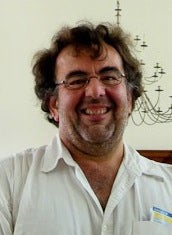
Paul Di Filippo sold his first professional short story in 1977. Since then, he’s had over thirty books of fiction and non-fiction published. His latest is Science Fiction: The 101 Best Novels 1985-2010, co-authored with fellow critic Damien Broderick. He lives in Providence, RI, with his partner of some thirty-seven years, Deborah Newton. His official website is http://paul-di-filippo.com/
Tony Estrella has been artistic director of the Gamm Theatre since 2002 and has been an actor and director with The company since 1996. He has appeared in more than 20 productions including The Real Thing, Anne Boleyn, A Doll’s House (which he also adapted), Glengarry Glen Ross, Rock ‘n” Roll, Much Ado About Nothing (2009 & 2000), Awake and Sing!, The Pillowman, the world premiere of Paul Grellong’sRadio Free Emerson, La Bête Crime and Punishment and the title roles in Hamlet and Henry V. He adapted and directed new versions of Friedrich Schiller’s Don Carlos and Dylan Thomas’ A Child’s Christmas in Wales, and has directed many productions for the company since 1997, including the North American premiere of Howard Brenton’s Paul and Sarah Kane’s 4:48 Psychosis. Tony has appeared in theaters throughout New England including Trinity Repertory Company and Boston Playwrights. In addition to being The Gamm’s artistic director, Tony teaches at the University of Rhode Island, where he has been on the theater faculty for the past 15 years. Tony’s film credits include Martin Scorsese’s The Departed and The Company Men. His television credits include episodes of the Showtime TV series “Brotherhood” and NBC’s “Law & Order” and he is a graduate of Trinity Rep Conservatory and the University of Rhode Island and is the recipient of this year’s Pell Award for Excellence in the Arts.
Tripp Evans is an art historian and author of two nonfiction books, Romancing the Maya: Mexican Antiquity in the American Imagination (University of Texas Press: 2004) andGrant Wood: A Life (Alfred A. Knopf: 2010), which received the National Award for Arts Writing. Evans received his Ph.D. in the History of Art from Yale University, and since 1998 he has taught art of the Americas at Wheaton College in Massachusetts. Biography — whether of individuals, nations, or institutions — is his favorite genre. Evans is currently working on two projects that cast New England subjects within a broader national context: Three Acres of Providence, which follows a small parcel of land in Providence from continental drift to the present; and The Importance of Being Furnished, which will tell the story of three Edwardian-era “bachelor” decorators. Read more at Evans’s website: www.trippevans.com.
Matthew Gavin Frank is the author of the nonfiction booksPot Farm and Barolo (both from the University of Nebraska Press/Bison Books), and Preparing the Ghost: An Essay Concerning the Giant Squid and the Man Who First Photographed It (forthcoming from W.W. Norton: Liveright); and the poetry books, The Morrow Plots and Sagittarius Agitprop (both from Black Lawrence Press/Dzanc Books), andWarranty in Zulu (Barrow Street Press), as well as three chapbooks. Recent work appears in The New Republic, Field, Epoch, AGNI, The Iowa Review, Crazyhorse, Black Warrior Review, North American Review, Seneca Review, DIAGRAM, The Normal School, Quarterly West, The Best Food Writing, The Best Travel Writing, Creative Nonfiction, Hotel Amerika, Gastronomica, The Huffington Post, Plate Magazine, and others. He was born and raised in Illinois, and currently teaches Creative Writing in the MFA Program at Northern Michigan University, where he is the Nonfiction Editor of Passages North. This winter, he prepared his first batch of whitefish-thimbleberry ice cream.
Michael Grossman is devoted to helping other authors self-publish and avoid the pitfalls of self-publishing. As owner of the ebookbakery.com, he guides authors along each step in the self-publishing process, turning their manuscripts into well-designed, print-on-demand paperback books and eBooks. His support starts with cover and interior book design and leads to print-on-demand paperback and eBook distribution. Authors get help with issues including book pricing, maximizing on-line exposure, and book distribution to the major retailers. Grossman, who holds a MA from Michigan State University and is the author of three books, advises: “I’ve been there. I’ve gone with a traditional publisher and I’ve self-published. I know the pitfalls but also how authors can take advantage of the power of the self-publishing opportunity.”
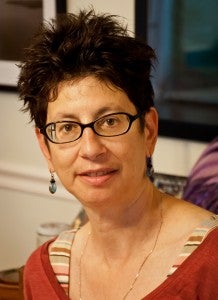
Amy Hoffman’s third memoir, Lies About My Family, was published by the University of Massachusetts Press in April 2013. She is the author of two previous, award-winning memoirs: An Army of Ex-Lovers, about the Boston weeklyGay Community News and the lesbian and gay movement of the late 1970s (UMass, 2007); and Hospital Time, about caring for friends with AIDS (Duke, 1997). Hoffman is editor of Women’s Review of Books and teaches creative nonfiction in the Solstice Low-Residency MFA Program at Pine Manor College. She has been an editor at Gay Community News, South End Press, the Unitarian Universalist World magazine, and The Public Eye. She taught writing and literature at the University of Massachusetts and Emerson College and served as development director for the Massachusetts Foundation for the Humanities and the Women’s Lunch Place, a daytime shelter for homeless women. She has served on the boards of Gay Community News, GLAD, Sojourner, and Boston’s LGBT History Project. Hoffman has a BA in English from Brandeis University and an MFA in creative writing from the University of Massachusetts at Amherst. She lives in Boston with her wife, Roberta Stone, and is currently working on a novel set in Provincetown, Massachusetts.
Sarah Kruse is a third year PhD candidate at the University of Rhode Island. Her research interests are the Lyric Avant-Garde, Philosophy of Language, and Literary Nonfiction, particularly the Essay. Her scholarly work has appeared inThe International Journal of Zizek Studies. She has been a staff writer for Propeller Quarterly since 2009.
Sarah Kruse is a third year PhD candidate at the University of Rhode Island. Her research interests are the Lyric Avant-Garde, Philosophy of Language, and Literary Nonfiction, particularly the Essay. Her scholarly work has appeared inThe International Journal of Zizek Studies. She has been a staff writer for Propeller Quarterly since 2009.
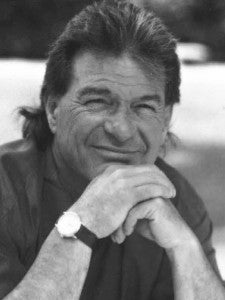
Robert Leuci is the author of the novels Doyle’s Disciples(1984), Captain Butterfly (1987), Odessa Beach (1990), The Snitch (1991). Fence Jumpers (1993) — described as a “A Mafia Opera worthy of Verdi” (Kirkus Reviews), Double Edge(1995), Blaze (2003). His publications include the memoir All The Centurions (2008) and several short stories. Leuci wrote a radio play for German radio, Brooklyn Roofs as well as television plays End Of The Month, for the Arts and Entertainment network show “100 Centre Street,” and The Muster Room for Public Television. He has written and produced three television episodes for the national television news program “A Current Affair”, exploring the problems in American Policing. In 2013, in collaboration with Rhode Island icon, Arlen Violet, Leuci has written a one act play, “The Centurion” based on his memoir; it is scheduled to be shown at the Manhattan Repertory Theater this coming August. Robert Leuci is an adjunct professor in the University of Rhode Island English department.
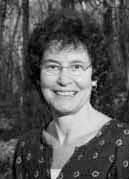
Jody Lisberger, PhD, MFA. Jody Lisberger’s story collection, Remember Love (Fleur-de-Lis Press, 2008), was nominated for a National Book Award. Her stories have appeared inFugue, Michigan Quarterly Review, Thema, Confrontation, and The Louisville Review. She has won fiction prizes from American Literary Review and Quarterly West, and her story “Crucible” was nominated for a Pushcart Award. She is on the fiction faculty at the brief residency MFA in Writing Program at Spalding University, Louisville, Kentucky. She has taught fiction, creative nonfiction, literature, and feminist theory at Brown, Harvard, Tufts, Holy Cross, Boston University, and University of Rhode Island, where she is currently the Director of Women’s Studies. She has also recently published creative nonfiction essays on pharmaceutical marketing (“Why Women Should Take Heed”), gender issues in the workplace (“The Politics of Data”), and worked as a journalist, editor, and grant writer.
Rachel May’s book, Quilting with a Modern Slant, is forthcoming from Storey (Workman). Her writing has been twice nominated for the Pushcart, won the William Allen Creative Nonfiction Award, the Geraldine McLoud Commendation for Fiction, Literal Latte’s Short Shorts Award, Honorable Mention in Ninth Letter’s Fiction Contest, and noted in over a dozen others. Her work has most recently been published in New Delta Review, Indiana Review, Cream City Review, Michigan Quarterly Review, Meridian, Nimrod, Word for/Word, and other journals. She’s a PhD student at URI and earned her MFA from The University of Montana.
Kevin McLellan is the author of the chapbook Round Trip(Seven Kitchens, 2010), a collaborative series of poems with numerous women poets. He has recent or forthcoming poems in journals including: 2014 Poets Market, American Letters & Commentary, Barrow Street, Colorado Review, Interim, Kenyon Review Online, Sixth Finch, Western Humanities Review, Witness and numerous others. Kevin lives in Cambridge MA, and sometimes teaches poetry workshops at the University of Rhode Island in Providence.
Maria Mutch’s essays, poetry and short fiction have appeared in Ocean State Review, Bayou Magazine, Literary Mama, The Malahat Review, Fiddlehead and Grain. Her memoir, Know the Night, is forthcoming in 2014 from Simon & Schuster and Knopf Canada. She lives in Rhode Island.
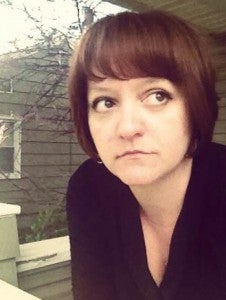
Jennifer Pashley is the author of two books, The Conjurer, (Standing Stone Books, 2013) and States (Lewis-Clark Press, 2007). Her stories, poems, and nonfiction have appeared widely in journals like Mississippi Review, Salt Hill, PANK, SmokeLong Quarterly and Interim. She has won the Red Hen Prize for fiction, the Mississippi Review Prize for fiction and the Carve Magazine Esoteric Award for LGBT fiction. Her first collection, States, was hailed by writer Aimee Bender as “an inviting and well-carved debut.” A graduate of Le Moyne College, Jennifer has taught creative writing at Syracuse University, and is a long time fiction instructor at the YMCA’s Downtown Writer’s Center. She was raised in Central New York by an accordion virtuoso and a casket maker, and now lives with her family in Clinton.
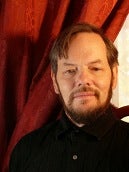
Russell Potter was born and raised in Cleveland Ohio; he attended Goddard College and The Evergreen State College, and earned his Ph.D. in English from Brown University. He’s the author of nonfiction books on topics as varied as the history of Hip-hop and British Arctic exploration, and appeared in Arctic Passage, an Emmy-nominated episode of PBS’s NOVA in 2006. His debut novel, PYG: The Memoirs of Toby, the Learned Pig, is based on the career of an actual “learned” pig that toured England in the 1780’s. Toby’s performances consisted of answering questions from the audience by spelling out his answers using cards on which individual letters of the alphabet were written. The pig’s ability to reply to all manner of inquiries amazed all who saw him, prompting the poet Robert Southey to declare him “a far greater object of admiration to the English nation than ever was Sir Isaac Newton.” PYG was originally published in the UK by Canongate Books in 2011, and will be published in the US as a paperback original by Penguin Books in August of 2012. He lives in Providence and is Professor of English at Rhode Island College.
Kristin Prevallet is a poet, performer, and hypnotherapist who is the author of five books including the critically acclaimed I, Afterlife: Essay in Mourning Time (Essay Press). Recently published is Everywhere Here and in Brooklyn: A Four Quartets (Belladonna, 2012) and You, Resourceful: Tap Your Inner Resources to Restore Your Mind and Body (Wide Reality Books). Her writing appears in Fourth Genre, Stonecutter, Spoon River Review, and several anthologies including I’ll Drown My Book: Conceptual Writing By Women.An associate of Bard College’s Writing and Thinking Program, in 2013 she is a visiting writer at Poet’s House, Spalding University, and Naropa University.
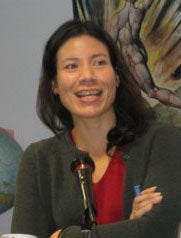
Martha Elena Rojas is Associate Professor of English and Director of the Edmund S. and Nathalie Rumowicz Program in Literature and the Sea at the University of Rhode Island. Her first book entitled Diplomatic Letters: Becoming a Nation Among Nations in Early America is under contract with the University of Pennsylvania Press, and she is currently at work on a study of the coastal imagination.
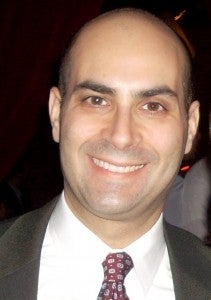
John Rudolph joined Dystel & Goderich in 2010 after twelve years as an acquiring children’s book editor. While John’s list started out as mostly children’s books, it has evolved to the point where it is now half adult, half children’s authors–and he’s looking to maintain that balance. He is actively looking for narrative nonfiction, especially in music, sports, history, popular science, “big think”, performing arts, health, business, memoir, military history, and humor. He is also interested in commercial men’s fiction–thrillers, mysteries and other “boy books.” On the children’s side, he is keenly interested in middle-grade and young adult fiction, and would love to find the next great picture book author/illustrator.
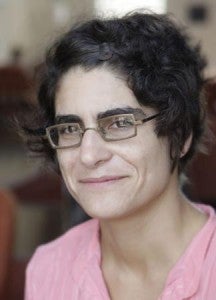
Kate Schapira is the author of four full-length books, most recently The Soft Place; her eighth chapbook is forthcoming this summer from Grey Book Press. She teaches creative writing at Brown University, serves as a visiting writer in Providence public schools, and co-runs the Publicly Complex Reading Series.
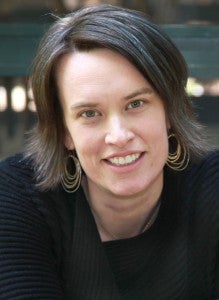
Deborah Salem Smith is the playwright-in-residence at Trinity Repertory Company. Her latest play Love Alonepremiered at Trinity Rep, and received an Edgerton Foundation New American Play Award as well as an Honorable Mention by the Jane Chambers Playwriting Award. Smith’s previous honors include an Emerging American Artist Fulbright for playwriting in Dublin, Ireland, where she worked with the Abbey Theatre, Ireland’s national theater, and served as a Visiting Academic at the Trinity College School of Drama. Her work has been produced across the country and recognized by a National Mellon Fellowship in the Humanities, a MacDowell Fellowship, a Colby Fellowship, a Major Hopwood Award, as well as writing and visual arts prizes from the University of Michigan and Princeton University. Her other plays include: Faithful Cheaters, Some Things Are Private, Good Business, and Boots on the Ground.
Kate Snodgrass is the Artistic Director of both the Elliot Norton Award-winning Boston Theater Marathon and Boston Playwrights’ Theatre at Boston University, the “Home of New Plays in Boston.” The author of the Actors’ Theatre of Louisville’s Heideman Award-winning play Haiku, her plays have been recognized with two IRNE Awards for “Best New Play” and a Steinberg Award nomination from the American Theatre Critics Association. She lectures in Playwriting at Boston University and is a member of A.E.A., A.F.T.R.A., and the Dramatists’ Guild. Acknowledged by Boston’s StageSource in 2001 as a “Theatre Hero,” Kate is a Playwriting Fellow at the Huntington Theatre Company and the recipient Boston’s Elliot Norton Award for Sustained Excellence.
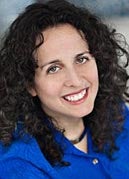
Author, blogger and book writing coach, Lisa Tenerspecializes in helping authors write and publish a compelling nonfiction book–and takes them step-by-step through her unique process. She teaches on the faculty of Harvard Medical School’s CME publishing course and at other conferences.She has been on ABC World News, PBS TV and been quoted in USA Weekend, The Boston Globe, Providence Journal and much more. Her book writing and book proposal clients have signed 5- and 6-figure publishing deals with Random House, Simon and Schuster, Charles Scribner’s Sons, Prometheus Books and many other publishers, as well as self-publishing. Visit Lisa online at www.LisaTener.com.
Padma Venkatraman is the author of two critically acclaimed novels – Climbing the Stairs and Island’s End – and has had over 100 nonfiction articles published in American, Indian and European journals. Her debut novel, Climbing the Stairs, was released to starred reviews and won the Boston Authors Club award and the ASTAL RI Book of the Year award, in addition to being shortlisted for several state awards and receiving numerous other honors such as a Booksense Notable citation, an ALA BBYA, a New York Public Library best book for teens, a CCBC/NCSS notable, a Bank Street college of Education best book, a Boolinks best books of summer, a Booklist Editor’s Choice Best Book of the Year, a PW Flying Start, a Capitol Choices selection and more. Her second novel, Island’s End, was released to starred reviews in Kirkus, Bookslist, Publishers Weekly and School Library Journal and is listed on several “best books of 2011” lists: Kirkus, Booklist, ALA, YALSA, Amelia Bloomer and CCBC.Island’s End won the international South Asia Book Award and a Paterson Prize. Her third novel, A Time To Dance, is scheduled for release in February 2014 and she has been invited to speak at the PEN World Voices Festival in New York city this April. Padma Venkatraman lives in Rhode Island and teaches scientific writing at URI.
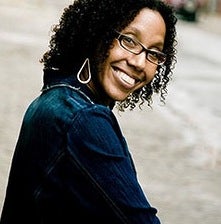
Tiphanie Yanique is the author of the short fiction collectionHow to Escape from a Leper Colony (Graywolf Press, 2010). Her writing has won the Boston Review Prize in Fiction, a Rona Jaffe Foundation Writers Award, a Pushcart Prize, the Bocas Caribbean Literature Prize in Fiction, and an Academy of American Poets Prize. In 2010, she was named one of the National Book Foundation’s 5 Under 35, a list of promising young fiction writers. Her stories, essays, and poems have appeared in Transition Magazine, the London Magazine, American Short Fiction, Salt Hill, and The Pushcart Prize Anthology. She was born and raised in St. Thomas, Virgin Islands and in 2000, was awarded a dual-country Fulbright to Jamaica and Trinidad and Tobago, where she studied Caribbean literature, women’s studies, and creative writing.
Conference Planning
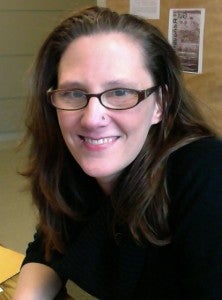 Andrea Yates is a Lecturer in English at URI. With degrees from Middlebury and the University of Rhode Island, as well as study at Oxford, she is a literary and cultural theorist who has published work on Beckett, Woolf, Derrida, and Pat Barker. She has taught introductory and advanced courses at the University of Rhode Island as well as directing Independent Studies in the areas of Film and Philosophy; Faulkner; Gay and Lesbian Literature; Enlightenment Authors; Critical Theory, and the Novel.
Andrea Yates is a Lecturer in English at URI. With degrees from Middlebury and the University of Rhode Island, as well as study at Oxford, she is a literary and cultural theorist who has published work on Beckett, Woolf, Derrida, and Pat Barker. She has taught introductory and advanced courses at the University of Rhode Island as well as directing Independent Studies in the areas of Film and Philosophy; Faulkner; Gay and Lesbian Literature; Enlightenment Authors; Critical Theory, and the Novel.Michelle Caraccia is the Conference Coordinator, the URI English Department’s Graduate Program Administrator, and a visual artist who has medaled in the Hatch Awards, won the Silver Pencil in New York’s One Show, and been awarded Dean’s Choice in the URI Student Juried Show. Her paintings, lithographs, and monotypes have been shown at the Gilbert Stuart Museum, Gallery Z, and URI’s Presidential Art Collection. She lives in Narragansett, RI with her family, close to the beach.
-
Please return for updates. Direct inquiries to ossummerwriting@gmail.com
Thursday, June 20
 PART I: THREE-DAY WORKSHOPS
PART I: THREE-DAY WORKSHOPS12:00 – 1:30 p.m. Registration
1:30 – 3:30 p.m. Workshops Session I (See Workshop Descriptions)
- Beginning Fiction: Instructor – Russell Potter
- Intermediate Fiction: Instructor – Tiphanie Yanique
- Advanced Fiction: Instructor – Edward Delaney
- Creative Nonfiction (All Levels): Instructor – Amy Hoffman
- Beginning/Intermediate Poetry: Instructor – Matthew Gavin Frank
- Advanced Poetry: Instructor – Mairéad Byrne
- Open-genre “Writing Your Mind:” Instructor – Kristin Prevallet
- Writing the Sea: Instructor – LaShonda Barnett
- Screenwriting: Instructor – Rob Cohen
3:30 – 4:30 p.m. One-on-One Consultations
3:30 – 4:15 p.m. Reception and Participant Showcase
4:30 – 5:30 p.m. Reading: LaShonda Barnett, Matthew Gavin Frank, Amy Hoffman, Russell Potter
7:00 pm Gallery Exhibition: “Transformed Volumes: Exhibition of Artists’ Bookworks,”curated by artist Paul Forte, Hera Gallery, 327 Main Street, Wakefield, RI.
Friday, June 21
8:30 – 9:00 a.m. Continental Breakfast
8:30 – 12:15 Registration
9:00 – 11:00 a.m. Workshops Session II
- Beginning Fiction: Instructor – Russell Potter
- Intermediate Fiction: Instructor – Tiphanie Yanique
- Advanced Fiction: Instructor – Edward Delaney
- Creative Nonfiction (All levels): Instructor – Amy Hoffman
- Beginning/Intermediate Poetry: Instructor – Matthew Gavin Frank
- Advanced Poetry: Instructor – Mairéad Byrne
- Open-genre “Writing Your Mind:” Instructor – Kristin Prevallet
- Writing the Sea: Instructor – LaShonda B arnett
- Screenwriting: Instructor – Rob Cohen
11:15 a.m. – 12:00 p.m. Box Lunch
 PART II: MAIN CONFERENCE
PART II: MAIN CONFERENCE12:15 – 1:25 p.m. Keynote: Ayad Akhtar (free and open to the public)
1:25 – 1:40 p.m. Booksigning
1:45 – 2:45 p.m. Panels and Craft Sessions I (See Event Descriptions)
- Conversation: Publishing with Betty Cotter, Lisa Tener, and Michael Grossman
- Craft Session: Fiction – Instructor: Robert Leuci
- Craft Session: Nonfiction – Instructor: Matthew Gavin Frank
2:15 – 3:35 p.m. Master Class: Playwriting/Screenwriting – Instructor: Ayad Akhtar
3:00 – 4:15 p.m. Craft Sessions II
- Craft Session: Historical Fiction – Instructor: LaShonda Barnett
- Craft Session: Nonfiction – Instructor: Tripp Evans
- Craft Session: Poetry – Instructor: Mairéad Byrne
4:30 – 5:40 p.m. Keynote: Richard Blanco (free and open to the public)
5:45 – 6:00 p.m. Book signing
5:45 – 7:00 p.m. Conference Participant Reception
7:00 – 9:00 p.m. Dinner & Reading with Mairead Byrne, Edward Delaney, Kristen Prevallet,Tiphanie Yanique
Saturday, June 22
8:30 – 9:00 a.m. Continental Breakfast
9:00 – 11:00 a.m. Workshops Session III
- Beginning Fiction: Instructor – Russell Potter
- Intermediate Fiction: Instructor – Tiphanie Yanique
- Advanced Fiction: Instructor – Edward Delaney
- Creative Nonfiction (All Levels): Instructor – Amy Hoffman
- Beginning/Intermediate Poetry: Instructor – Matthew Gavin Frank
- Advanced Poetry: Instructor – Mairéad Byrne
- Open-genre “Writing Your Mind:” Instructor – Kristin Prevallet
- Writing the Sea: Instructor – LaShonda Barnett
- Screenwriting: Instructor – Rob Cohen
9:00 – 11:00 a.m. Intensives
- Fiction: Sci-Fi – Instructor: Paul Di Filippo
- Fiction: Crime Writing – Instructor: Robert Leuci
- Nonfiction – Instructor: Kate Schapira
11:15 – 12:30 p.m. Panels and Craft Sessions III (See Event Descriptions)
- Conversation: On Agents with Padma Venkatraman and John Rudolph
- Craft Session: Fiction/Nonficton – Instructor: Nancy Berk
- Craft Session: Poetry – Instructors: Talvikki Ansel and Kevin McLellan
- Craft Session: Playwriting – Instructor: Kate Snodgrass
12:30 – 1:15 p.m. Box lunch & Reading with Ocean State Review contributors
1:15 – 2:25 p.m. Keynote Amity Gaige (free and open to the public)
2:25 – 2:40 p.m. Book signing
2:45 – 4:00 p.m. Panels and Craft Sessions IV
- Conversation: Playwriting with Tony Estrella, Deborah Salem Smith, and
Kate Snodgrass - Conversation: Memoir with Mary Cappello, Amy Hoffman, Maria Mutch, and Sarah Kruse
- Craft Session: Fiction – Instructor: Edward Delaney
- Craft Session: Poetry – Instructor: Kristin Prevallet
- Craft Session: Screenwriting – Instructor: Rob Cohen
4:15 – 5:30 p.m. Craft Sessions V
- Craft Session: Fiction – Instructor: Tiphanie Yanique
- Craft Session: Historical Fiction with Padma Venkatraman, Jeannine Atkins and Sarah Lamstein
- Craft Session: Fiction/Nonfiction – Instructor: Jody Lisberger
- Craft Session: Publishing – Instructor: Britt Bell
5:00 – 6:30 p.m. One-on-one Consultations
5:30 – 7:00 p.m. Conference Participants’ Reading
If you have a disability and need an accommodation, please call 401.874.4663 at least three weeks in advance. For TTY assistance, please call the Rhode Island Relay Service at 800.745.5555.
-
Here is a closer look at some of our conference offerings. Check back regularly as new events are added, or follow us on Facebook, where you will find more information about the programs, presenters, writing events in the Northeast, and resources for writers.
 THREE – DAY WORKSHOPS
THREE – DAY WORKSHOPSAttendees enrolling in a Three-Day Workshop may choose to study fiction, creative nonfiction, play writing, or poetry. The workshops meet Thursday afternoon, Friday morning, and Saturday morning. Workshops are led by our highly accomplished conference faculty members. Spend several hours in a small, intimate setting practicing writing and learning from one another. Workshops are a great place to get feedback from fellow students as well as a faculty member in a comfortable and supportive environment.
Each workshop meets Thursday, 1:30 – 3:30 p.m.; Friday, 9:00 – 11:00 a.m.; and Saturday, 9:00 – 11:00 a.m.
- Fiction Workshop (Beginner)
Instructor: Russell PotterThe purpose of this workshop will be to encourage writers to gain awareness of both external and self-imposed restrictions and rules, and find ways to carefully, thoughtfully, productively break them. We won’t judge these rules; our initial goal will simply be to list them out, and select a few of those that each of us feels is the most binding. We’ll look at all kinds of rules: formal rules, audience rules, rules about work, revision, format, and even grammar. And then we’ll test them out. Each of us will then work to develop our rule-breaking exercise into a short piece or passage of fiction, and see whether we discover in that process some voices, some forms, and some delights that our individual sense of the “rules” prevented us from exploring before.
- Fiction Workshop (Intermediate)
Instructor: Tiphanie Yanique
- In this workshop you will be asked to put yourself in danger. You will be pushed to a point of discomfort, even dismay. We will apprentice ourselves to literature from contemporary masters such as Gabriel Garcia Marquez and Jamaica Kincaid, and learn from newer writers such as Zadie Smith and Ben Fountain. We will focus on craft elements such as narrative voice, dialogue, scene development, structure and character development. But we will not shy away from discussing the provocative elements of craft. Your characters speak a particular kind of English, your characters have a particular kind of sex, your characters act in ways influenced by their particular historical moment and social reality. We will address the politics of your writing under the microscope of craft. You will be encouraged to write literature that not only changes the reader, but challenges you.
- Fiction Workshop (Advanced)
Instructor: Edward DelaneyThis workshop will address some of the elements important to the emerging writer, both in terms of short stories and novels. We’ll start with the question of what we’re writing and why we’re writing it: Are we choosing to tell the best stories we can, and sometimes the less-obvious ones? That includes questions of revision and evolution of past work, and conception of new work. We’ll talk about the underpinnings of advanced storytelling, the elements below the surface that inform good stories, and the intangibles that give them life. We’ll discuss more complex storytelling strategies. And, as well, we’ll talk about what might conversely be referred to as either our “audience,” or “the market.” Where does storytelling fit into our world, and why are we choosing to try to tell them?
- Creative Nonfiction Workshop (All levels)
Instructor: Amy HoffmanIn this workshop we will practice reading and writing like writers, by writing in response to prompts (so come prepared with writing materials), discussing one another’s work, revising in response to these discussions, and engaging with assigned readings. We’ll also think about how to make the emotional, creative, and physical space for writing in our daily lives.
- Poetry Workshop (Beginner/Intermediate)
Instructor: Matthew Gavin Frank“Writing Place, Writing Home” — This workshop will engage various techniques regarding the poetic engagement of specific and intimate place, home, and one’s home region, while avoiding sentimentality and other pitfalls. (Of course, these notions of “place” and “home” can be variously interpreted). In workshop, we will apply such discussed techniques to the revision of existing poems, and to the generation of new work. We will further discuss notions of situating said poetry within the world of literary journals, publication outlets, and the beginning stages of compiling a focused book-length (or chapbook-length) work.
- Poetry Workshop (Advanced)
Instructor: Mairéad ByrneEach day of the Advanced Poetry Workshop will include close reading of an exemplary poem selected by the instructor, in-class writing in response to a prompt or exercise, and most importantly–the presentation and critique of participants’ poems. Participants will be expected to have thought long and hard about form and economy in their work, and to be open to experiment. In critique, we will pay close attention to subject matter, vitality, and performance. The objectives of the Workshop are for participants to write three new poems, to establish a writing community, and to prepare a short reading of new and/or revised poems for performance on Saturday.
- Open-genre Workshop: “Your Writing Mind”
Instructor: Kristin PrevalletIn this open-genre, deep-immersion workshop you will be invited to learn new ways to creatively unlock your unconscious mind and to use your creativity to heal emotional, spiritual, and physical blocks. In this workshop you will explore strategies to effortlessly generate new writing and revise older work, always with the intent of surprising yourself. Drawing from a wide range of sources — including neuroscience, poetics, and spiritual texts — you will be encouraged to break free of your usual processes in order to compose pieces you never knew you wanted to write, and revise your work with renewed enthusiasm.
- Writing the Sea Workshop
Instructor: LaShonda BarnettThe sea serves as more than scenic backdrop in classic literature such as The Odyssey; it has influenced the imaginations of writers throughout history. From James Fenimore Cooper (The Pilot) and Herman Melville (Moby Dick), to Stephen Crane (The Open Boat) and Ernest Hemingway (The Old Man and the Sea) to Charles Johnson (Middle Passage) and Gabriel Garciá Márquez (The Story of a Shipwrecked Sailor), writers have looked under real and imagined sails, reflecting upon the sea and its meanings. This workshop will explore the sea’s tidal pull on imagination: the myths of its vast expanse, the reflection of the human psyche in its surface, and the history of politics, culture, commerce, and exploration it carries. Charting our course are passages from American literature (see above) in which the sea acts as the setting, a body of symbolism, a mystery, the agent of divine wrath, an epistemological challenge, a means of escape, and a reason to reflect on the human relationship to nature. We will engage with fiction concepts from voice (p.o.v), character, setting and plot. Participants will polish a sea scene from their own novel-in-progress or short story. Prerequisite: Bring me your stories of salty ports, shipyards, coasts stippled with wrecks, and ships in pursuit of slaves, pilgrims, pirates and whales. Participants must submit one ‘sea’ scene from a work of fiction, 7-10 double-spaced pages. Writing samples should be submitted electronically as an attachment to lashonda@lashondabarnett.com by June 10, 2013; PDF format is preferred.
- Screenwriting Workshop
Instructor: Rob Cohen“Blurring the lines: writing for all kinds of screens” — Everything is communicated on screens: movie theaters, tvs, laptops, Ipads, smartphones. Screens demand entertaining content, and this content requires writers. Writers now work across mediums, blurring the traditional lines: essayists write screenplays, and tv people write advertising. This workshop is for writers who want their work on screen. It will examine the universal skill sets that writers must take with them as they move from one medium to the next. We will look at the best work in each medium and engage in series of diverse screenwriting exercises. At the end of the workshop, each participant will have developed at least 3 different writing samples.
 MASTER CLASS (Friday 2:15 – 3:35 pm)
MASTER CLASS (Friday 2:15 – 3:35 pm)Our master class allows you to study with our featured keynote speaker. This class has limited enrollment to ensure that you have a chance to engage with the instructor and fellow classmates.
- Playwriting/Screenwriting – Ayad Akhtar
Story Workshop – We will discuss a few major paradigms of story structure: the hero’s journey; classical three act structure; eleven-point story analysis. The goal will be to provide useful ways of thinking about story for the writer planning a full-length narrative in either screenplay or long-form fiction or stage play.
 INTENSIVES (Saturday 9:00 – 11:00 am)
INTENSIVES (Saturday 9:00 – 11:00 am)Intensives will allow you to study with one of our featured presenters. These classes have limited enrollment to ensure that you have a chance to engage with the instructor and fellow classmates.
- Sci-Fi Fiction – Intensive
Instructor: Paul Di FilippoHow does a writer–novice or experienced–create a kind of “overstuffed” science fiction that dazzles with a wealth of ideas and characters? All too often, writers of imaginative literature, even the best, are timid and parsimonious when it comes to doling out concepts, feeling perhaps that too much information can overwhelm the reader and confuse the narrative. But many examples of “maximalist” science fiction exist–such as the work of Charles Harness, Hannu Rajaniemi and A. E. van Vogt–and by using the tricks they employed, writers can fashion similar intriguing tales. If students wish, they may consult Di Filippo’s How To Write Science Fiction (A Maximalist and Recomplicated Travel into Sci-Fi) in advance, though this is not a requirement:http://tinyurl.com/bw6d3g6
- Crime Writing Fiction – Intensive
Instructor: Robert LeuciIn this intensive workshop, we will discuss the surreptitious and surprising ways we create a crime novel. Join me, and together we will attack the secrets of characterization, of pace and action. We’ll discuss the carefully selected decisions authors make when they build a character and we will decipher techniques for portraying the characters to our readers. We will certainly spend time on dialogue. It is always dialogue that will put on view the talent of the writer. In short, we’ll chat about how to write dialogue and scenes that capture interest and convince the reader you own the world you are describing. Last but not least you will learn how to piece a perfect crime together and create realistic stories that are taut, immediate and fraught with tension.
- Nonfiction – Intensive
Instructor: Kate SchapiraGood nonfiction writing releases true stories into the world. In this intensive you’ll draw on all your vocabularies, use what you already know to surprise yourself, and begin to write things as real as they are true. This is a good workshop to take if you have a story you’ve been wanting to write but don’t know how to write it, or if you’ve been wanting to write something but don’t know what. We’ll build on several sources–excerpts from existing texts, information shared in class, and your own past, present and future awareness–to start and to develop nonfiction narratives. You’ll walk away with a few infinitely re-applicable techniques and tactics, and a gathering of seeds and possibilities for potential future work.
 CONVERSATIONS (Friday and Saturday)
CONVERSATIONS (Friday and Saturday)“The real writer is one who really writes,” wrote Marge Piercy. Writers make writing a priority in their lives. And to feed their writing selves, they also read and attend readings, enroll in classes, join groups, enter contests, apply for grants/fellowships, explore markets, and learn new technologies to enhance their success once they’re ready to publish. Throughout the conference, we offer moderated conversations with writers about the work of writing.
- Friday, 1:45 – 2:45 pm: Conversation on Publishing
with Betty Cotter, Lisa Tener, and Michael Grossman“Paths to Publication: Successful Traditions versus Novel Ventures”
— What possibilities do traditional and new publishing formats open up for authors? From e-books to i-books to blogs to interactive courses: how can authors take advantage of publishing’s new digital worlds for their books and other materials? What are the pros and cons of taking one of the new routes (as opposed to a traditional) path to publication? This panel of 3 writing professionals: a book coach, a self-publishing consultant and digital book designer, and a novelist who has successfully experienced both traditional and self-publishing options will discuss different routes to publication, so attendees can make wise and well-informed choices. The panel will leave sufficient time to answer questions from participants.
- Saturday, 11:15 – 12:30 pm: Conversation on Agents
with John Rudolph and Padma Venkatraman
John Rudolph of the New York based Dystel and Goodrich Agency, who is interested in adult nonfiction, commercial men’s fiction, young adult and also children’s books, will set the stage with a short introduction about his work as an agent. The floor will then be open to discussion. Attendees are encouraged to ask questions about the role of agents, seeking representation, the publishing market and other related issues of general interest to all attending the session. Please note that John cannot read or respond to specific manuscripts during this conversation (those who enroll in a one-on-one consultation with him will be given his feedback at another time). Padma Venkatraman will moderate the Q & A.
- Saturday, 2:45 – 4:00 pm: Conversation on Memoir
with Mary Cappello, Amy Hoffman, and Maria MutchThree nonfiction writers will discuss the formal, personal, and political challenges of writing book-length memoirs. What makes memoir a particularly capacious and suddenly timely form? What’s the difference between memoir and strict autobiography? Between popular memoir and literary memoir? The authors will discuss their own memoirs of sexual and class identity, familial memoirs and thematically driven memoirs; memoirs that un-do narrative conventions of illness (cancer, and AIDS) and ability (autism). How can we write memoir that resists the confessional mode? Why would we want to? Hoffman, editor of Women’s Review of Books; Cappello, Professor of English at URI; and Mutch, an alum of the OSSWC whose debut memoir is forthcoming from Simon and Schuster will read brief exemplary passages from their work, and allow for ample time for full-fledged discussion with the audience.
- Saturday, 2:45 – 4:00 pm: Conversation on Playwriting
with Tony Estrella, Deborah Salem Smith, and Kate Snodgrass
Two award-winning playwrights join a distinguished artistic director in a wide-ranging discussion of the roles of the contemporary playwright. Among other topics, the three will examine: the particular circumstances women playwrights face in getting their work produced; relationships among artistic director, director, and playwright; the ten-minute play format; and the docudrama. What particular perils does the playwright confront on the journey from page to production? What challenges face an artistic director who chooses to produce new works? How are today’s political and economic problems affecting what we see onstage? What is the artistic director’s role in nurturing playwrights? The panel will address these questions while leaving ample time for questions and contributions from their audience.
 CRAFT SESSIONS (Friday and Saturday)
CRAFT SESSIONS (Friday and Saturday)Our 60-minute craft sessions are designed around a particular aspect of, or approach to, writing and are often genre-specific. Participants will read and discuss examples of writing, then get a chance to complete a short in-class writing assignment. Craft sessions are a chance for you to consider a particular aspect of writing, respond to a prompt on-site, and see how other attendees respond to your work.
- Friday, 1:45 – 2:45 pm: Fiction
Instructor: Robert Leuci
“Mystery Writing” — The audiences for the mystery novel are voracious readers. Many readers go through a book a week and some a day. That is why there are so many mystery novels written. I know any number of people who would never get on a plane, a train, a bus, or a subway without one. Publishers need a whole lot of material to fill such a market. In the time we have at our craft session we will explore how a mystery novel gets written. We’ll travel from narrative drive, to finding material and characters, plotting, first and third person and of course dialogue. If you feel as though you have a mystery inside you and you need some sort of incitement to write it, we promise to do our best to get you going. “The average detective novel is probably no worse than the average novel, but you never see the average novel. It doesn’t get published. The average or only slightly above average detective story does. Not only is it published but it is sold and read.” – Raymond Chandler, The Simple Art of Murder.
- Friday, 1:45 – 2:45 pm: Creative Nonfiction Feature Writing
Instructor: Matthew Gavin Frank“The Wide World of Creative Nonfiction Writing” — This session will engage various forms of creative nonfiction writing, and will discuss the process of publishing such work in literary journals, commercial magazines, and, eventually, in book-form. Discussion will also include, but not be limited to, the ever-shifting “ethics” of nonfiction writing, nonfiction vs. the essay, “immersion” nonfiction writing, the writing of a good query letter, and developing relationships with agents and editors. Q&A with audience to follow.
- Friday, 3:00 – 4:15 pm: Historical Fiction
Instructor: LaShonda Barnett“The Truthful Lie” This workshop group will consider the practical challenge at the core of writing historical fiction: the seamless integration of fictive imagination and historical fact. Truth relies on historical research. However, the evidence of historical reality must be woven into the verities of any good novel–plot, character, setting, structure. Sessions will begin with discussion and deconstruction of an exemplary scene, followed by workshopping two participants’ scenes (chosen ahead of time by me, in tandem with the topic discussed that session). Scenes from the following authors will be considered during the session: Russell Banks (Cloudsplitter); Amy Bloom (Away); Edwidge Danticat (The Farming of Bones); and Charles Frazier (Cold Mountain). In addition to our examination of fiction elements, participants will be introduced to the tools of historical research for novel writing, with particular attention on how to set the scene and establish the period and how to find a voice that is historically accurate in terms of language, but with modern appeal.
- Friday, 3:00 – 4:15 pm: Nonfiction
Instructor: Tripp EvansIn this session we will explore the role of biography in nonfiction writing, from the traditional study of a single individual to the treatment of an entire era. How do writers shape the fragmentary material of a subject’s life into a compelling narrative? What can biographical writing teach us about shaping larger historical stories? We will consider the use of different forms of evidence in biographical writing — interviews, archival material, and creative works — as well as the question of audience (how, for example, do biographers trained in a particular field write differently for an academic or a trade press?). Newcomers to the genre are particularly welcome.
- Friday, 3:00 – 4:15 pm: Poetry
Instructor: Mairéad ByrneEven when extravagant, poetry is a minimalist form. It works in small units, whether the line or the sentence. In poetry, as surely as in html, the weight of the semi-colon is felt. Yet poetry is also robust, completely dependent on the hurly-burly of audience to achieve its arc. In this Craft session, we will investigate poetry economies, in prose and verse. What happens when the poem is “translated” from line to sentence or vice versa? Does the poetry survive? Using the examples of W.B. Yeats, who wrote the poem’s argument in prose before hammering it out in verse, my collaborative bookJennifer’s Family, and participants’ in-class writing, we will assess the magical dynamics of poetry, which responds resourcefully both to the most delicate shifts in punctuation, and havoc.
- Saturday, 11:15 – 12:30 pm: Fiction/Nonfiction
Instructor: Nancy Berk“Laugh Track: Developing Your Humor Writing”
— Have you always wanted to take a shot at writing humor? Are you a humor writer who wants to kick it up a notch? Whether you’re a beginner or well on your way, this session will focus on strategies to strengthen your humor portfolio and build your brand via social media.
Part 1: Inspiring Creativity: We will look at resources and exercises that will get you on the fast laugh track, and take a sneak peek at what it takes to write great humor.
Part 2: Developing Your Voice and Tightening Your Work: Good humor is more than just story telling. We’ll examine ways to build your brand and create the best product.
Part 3: Promotion: Sure it’s tough out there and everyone who isn’t a writer claims they are or will be one day. We’ll look at print and online media outlets as well as the power of Twitter, Facebook, Linkedin, and Pinterest to create immediate opportunities to level the playing field. - Saturday, 11:15 – 12:30 pm: Poetry
Instructors: Talvikki Ansel and Kevin McLellan“Poem as Event” — In this craft session we’ll explore the sense of discovery in writing poems. We’ll be taking as inspiration Wallace Steven’s philosophy: “The reading of a poem should be an experience [like experiencing an act]. Its writing must be all the more so…” in trying a few writing exercises in class. We’ll also keep in mind Robert Frost’s oft-quoted “no surprise for the writer, no surprise for the reader” and his observation that: “Like a piece of ice on a hot stove the poem must ride on its own melting.” How do we write poems that enact this? How do we write poems that keep writer and reader moving through the lines in ways that surprise, yet are possible? We’ll read poems by a few contemporary writers and experiment with writing prompts to see what we can discover.
- Saturday, 11:15 – 12:30 pm: Playwriting
Instructors: Kate Snodgrass“Writing the Ten-Minute Play” — This short play form is a genre unto itself with its own rules and theatrical expectations. We’ll talk about these rules, read a ten-minute play, and discuss which dramatic ideas are most workable for a successful ten minutes. Bring ideas for your own ten-minute play (or the first two pages of one).
- Saturday, 2:45 – 4:00 pm: Fiction
Instructor: Edward Delaney“Writing Linear Narrative in a Nonlinear World” — The idea of Narrative carries with it a movement through time, and for a reader this banks heavily on the delayed gratification of a story that reveals itself over the course of its pages. But, conversely, storytelling exists now in a world in which narrative is implied, and “the present” is underlined by media forms and personal behaviors that emphasize the primacy of present moment. From Facebook and Twitter to 24-hour news, people are conditioned to become bored easily, seek constant stimulus and not wait for answers. That often goes against what we offer as storytellers. Some evolving thoughts on how stories might need to be told differently than they were even twenty years ago, and how skilled narrative can work in opposition to these challenges.
- Saturday, 2:45 – 4:00 pm: Poetry
Instructor: Kristin Prevallet“TrancePoetics” — Metaphors are key to how writers communicate from our unconscious mind to compose from a “flow state” where the inside and the outside simultaneously create each other. Bridging connections between neuroscience and creative writing, you will come away from this intensive workshop with insights into how to use your creative processes to communicate with your body to both generate material and move through emotional or physical blocks.
- Saturday, 2:45 – 4:00 pm: Screenwriting
Instructor: Rob Cohen“Television Writing: What can you write in 30 seconds? 30 minutes? 1 hour?” —Movies, Novels and Theater don’t have a clock. Only Television is the writer’s medium with a time limit. Sitcoms, episodic dramas, reality television and non-fiction programming all have their meters that tick, tick, tick as their stories unfold (around the commercial breaks, of course). This seminar will examine the writing disciplines that television demands. The pace and brevity of television is just the kind of muscle that writers from other mediums can learn to exercise. Examples from across the television landscape will be coupled with in-seminar writing exercises.
- Saturday, 4:15 – 5:30 pm: Fiction Craft Session
Instructor: Tiphanie Yanique“Poetry in the Prose” — What does it mean to write well? What exactly does it mean to be a good novelist or essayist? When reviewers, publishers and readers say that they’ve experienced good writing they don’t generally mean good plot or scene or even character development–they mean the actual choice of words; their placement and their power. Painters have paint, musicians have bars–we writers have words. In this craft class we will go back to the basics. We will pay attention to word choice and metaphor so that our well-planned plots, our structured scenes, and our compelling characters are more than just the sum of those parts.
- Saturday, 4:15 – 5:30 pm: Historical Fiction Craft Session
with Padma Venkatraman, Jeannine Atkins and Sarah Lamstein
“Keeping Historical Fiction Current” — Three award-winning and critically-acclaimed authors will lead a discussion on why and how they wrote fiction set in the past. They will provide insights into the process of writing stories set in the past that today’s readers find relevant. Attendees will have a chance to do a hands-on creative exercise on developing a layer of history to enrich their works in progress. - Saturday, 4:15 – 5:30 pm: Fiction/Nonfiction Craft Session
Instructor: Jody Lisberger“Craft Crossovers Between Fiction and Creative Nonfiction” —
This craft session will examine and offer participants practice on a few of the many craft elements that fiction and nonfiction writers share. For instance, knowing how one genre (fiction) maximizes the dramatic tension of dialogue can also help the creative nonfiction writer know how and where to write–or not write–dialogue; likewise, knowing how the creative nonfiction writer effectively proportions and uses the seen/scene and unseen can also help the fiction writer create effective pacing and dramatic tension in a story or novel. We’ll look at examples of both and try our hand in moving between fiction and nonfiction so as to benefit from the craft skills in both.
- Saturday, 4:15 – 5:30 pm: Publishing Craft Session
Instructor: Britt Bell“Get Published” — In this craft session you will receive tips on how to prepare a finished manuscript for presentation to either an agent or a publisher; from correspondence to the physical preparation of the manuscipt, you’ll learn how to increase your skills at selling and marketing your work. 50+ years in the book business inform this craft session. You’ll gain insights on how I work with prospective authors so that they can become focused, and stay focused to achieve their writing goals.
 GALLERY EXHIBITION
GALLERY EXHIBITION
“Transformed Volumes: Exhibition of Artists’ Bookworks,” curated by artist Paul Forte, will be on view from June 15-July 13 at the Hera Gallery in Wakefield, RI. He will give a talk about the exhibit on Thursday, June 20th at 7:00 pm. Read more about the show in this article in Numero Cinq Magazine.The Hera Gallery: 327 Main St., Wakefield, RI
Hours: Wed, Thurs. Fri 1-5
Sat. 10-4 - Fiction Workshop (Beginner)
 Home
Home Browse
Browse Close
Close Events
Events Maps
Maps Email
Email Brightspace
Brightspace eCampus
eCampus



